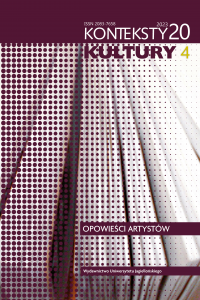
We kindly inform you that, as long as the subject affiliation of our 300.000+ articles is in progress, you might get unsufficient or no results on your third level or second level search. In this case, please broaden your search criteria.


The presence of autothematic narratives in the three basic models of culture – literary, audiovisual and digital – is a crucial factor influencing the diversity and dynamic evolution of the story on creating. The notion of autopoiesis introduced by the neurobiologists and sociologists widens the spectrum of research on creative process in literary texts, and more broadly in texts of culture. In the connection with these two functional aspects of autopoiesis: in the traditions of different medias and multiple research directions analysing the creative process, the author presents three models of modernist novel on creating. The interpretation of Testament by Witold Gombrowicz allows us to indicate, firstly, the process of narrative identity of writer constituting itself; secondly, the metaphor of theatre’s backstage providing autopoiesis with a performative dimension; and thirdly, the poetic rules of storytelling about creation, which build up its epiphanic aura.
More...
The article presents the preliminary remarks regrinding the narrative on creative process in the literature of the personal document (particularly in dairies and partially in letters) of two poets: Maryla Wolska and her daughter Beata Obertyńska. The aim of the conducted analyses was to research the artistic self-awareness of both women, the description method of their own creative process and the potential relation between understanding the nature of poetry and poetry’s craft. Reading of Wolska’s and Obertyńska’s letters points towards a particular role of community of artists in the creative process, whose opinions shape the creation at last.
More...
W przypadku Władysława Sebyły wypowiedzi o pisaniu dotyczą nie tylko samego procesu twórczego, ale również wszystkiego, co ów proces otacza: czasu (jego życia i jego epoki), przestrzeni (warszawskiej, cyganeryjnej, rodzinnej, a wreszcie – militarnej i obozowej), finansów (zaległości redaktora naczelnego „Kwadrygi” w spłacaniu ministerialnych subsydiów oraz pierwszych pieniędzy zarabionych na literaturze w radiowym Kwadransie Poetyckim). Poznając warunki twórczej pracy Sebyły, otrzymujemy zatem mało romantyczny obraz tego, jak to wygląda od kuchni – więcej tu walki i mozołu niż szału i natchnienia. A jednak – w tym wszystkim – jest również „chłopiec zgubiony w czasie”, jest Dialog w ciemności. Moj artykuł skupia się na poszukiwaniu granic pomiędzy kreacją, manifestem i wyznaniem w dialogach chłopca z Obrazów myśli z żywiołem własnej twórczości.
More...
The article is concerned with one of the most important aspects of Olga Tokarczuk’s oeuvre, which is the topic of writing practice. The Noble Prize winner addresses it not only in her essays, but also in her opinion pieces, showcasing through it the constant and cautious observation of her own creative process. The reflexion on the relation between literature and reality is also presented in the literary texts, to which amongst others belongs the short story Scottish Month from the volume Playing on a Multitude of Drums. The text interpretation presented in the article addresses the question of situating the creative act at the crossroads of what is real and what is imagined, being connected – as a consequence – with perceiving the writer as a person who simultaneously writes and is written. The epitome of this meta-literary multiplication is the main protagonist – the character, narrator and alter ego of the author at the same time, who becomes aware of her involvement with the multilayered structure of truth and fiction.
More...
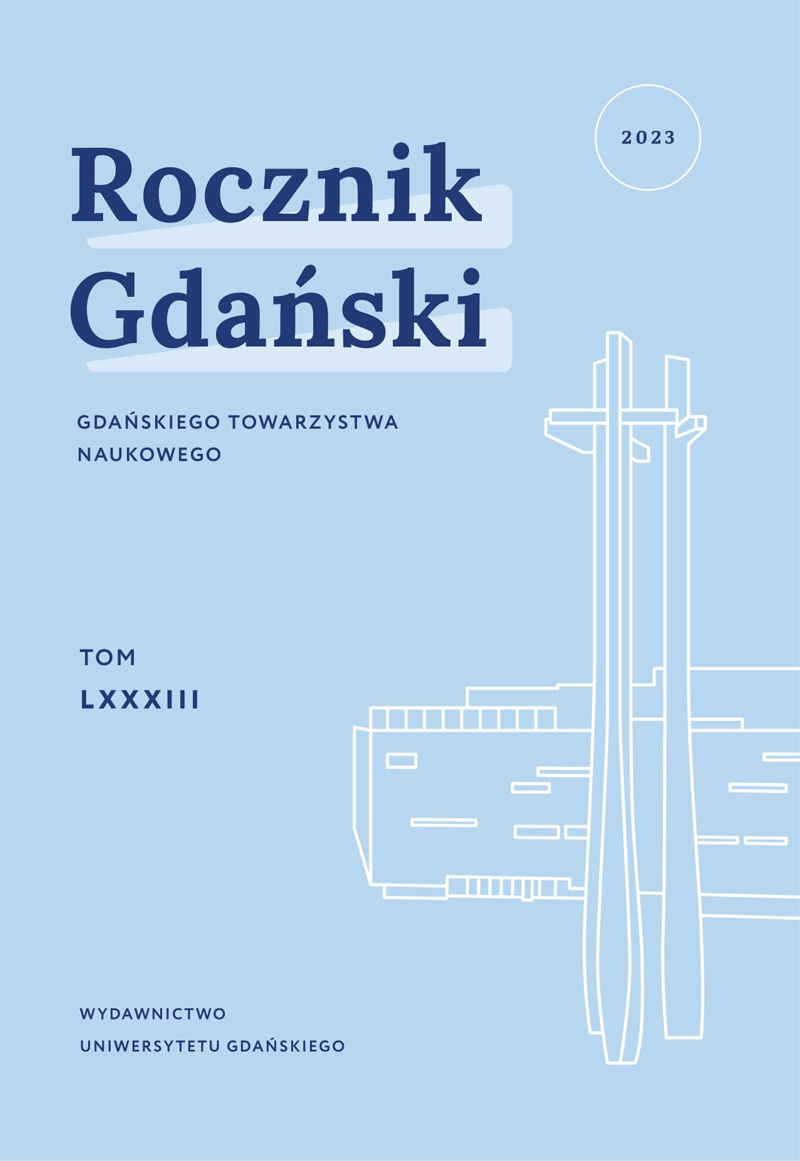
The article is devoted to Heinrich Nitschmann, a German translator and propagator of Polish literature in Germany, one of the most influential participants in Polish‑German cultural contacts in the second half of the 19th century. The article emphasizes the regional, borderland aspect of the translator’s biography which was connected with Elbląg, paying attention, however, primarily to Nitschmann’s connections with Danzig, which have been overlooked in previous studies. The paper focuses on Nitschmann’s long‑term cooperation with the Danzig bookseller and publisher Karl Theodor Bertling who enabled his debut as a translator (as editor of several anthologies containing his own translations of Polish poetry) and as an author (a collection of essays Erinnerungen an Oliva, expressing both the translator’s emotional bond with Pomerania and the attitude to nature characteristic of the educated German bourgeoisie of the 19th century). The article posits that it was the Danzig publisher who paved the way for Nitschmann to enter the publishing market in Germany: in Leipzig and Dresden, significantly contributing to his later success. Nitschmann’s publications: his translation anthologies and his popular outline of Polish literature (Geschichte der polnischen Litteratur) had many reprints and shaped the image of Polish culture among German audiences of the Wilhelminian era. The example of Nitschmann’s and Bertling’s successful collaboration shows how the synergy of action between translator and publisher – figures often marginalized from a literary‑historical perspective – resulted in greater power in the literary field and in the possibility of influencing Polish‑German literary contacts in the 19th century.
More...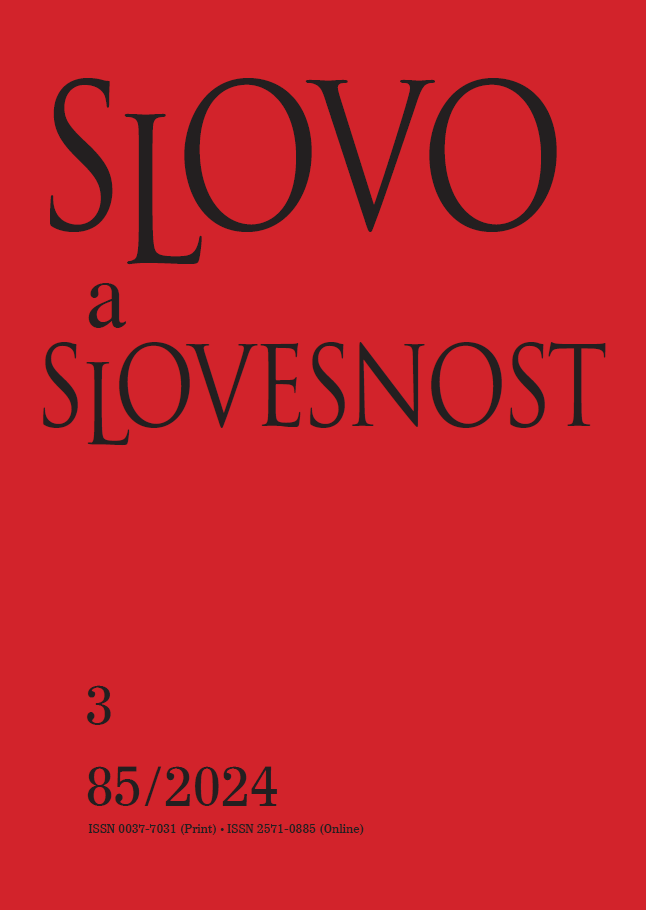
This paper is a quantitative onomastic analysis of four works featuring the literary figure of Švejk. These are the original novel by Jaroslav Hašek, two retellings of the story from the period of WWII (1941 and 1945), and a 1970s–80s version by Martin Petiška, who moved the story to Czechoslovakia after the 1948 Communist coup. The analysis relies on the thematic concentration of text (with an emphasis on the role of proper nouns as thematic words) and collocation analysis of the proper noun ‘Švejk’. Its aim is twofold: first, to determine whether there are quantitatively detectable differences between the original work and its paraphrases concerning the use of proper names; and second, to determine whether there is a difference between the paraphrases and the original as regards the literary figure of Švejk. The analysis shows that the paraphrases reduce the text-type richness of the original, while maintaining Švejk as the protagonist. The paraphrases employ a popular interpretation of the main character (Švejk as a “smart idiot”), leaving aside other aspects of Hašek’s multi-layered novel. Partial shifts in the portrayal of the main character are related to his intellectualization or increased emotionality.
More...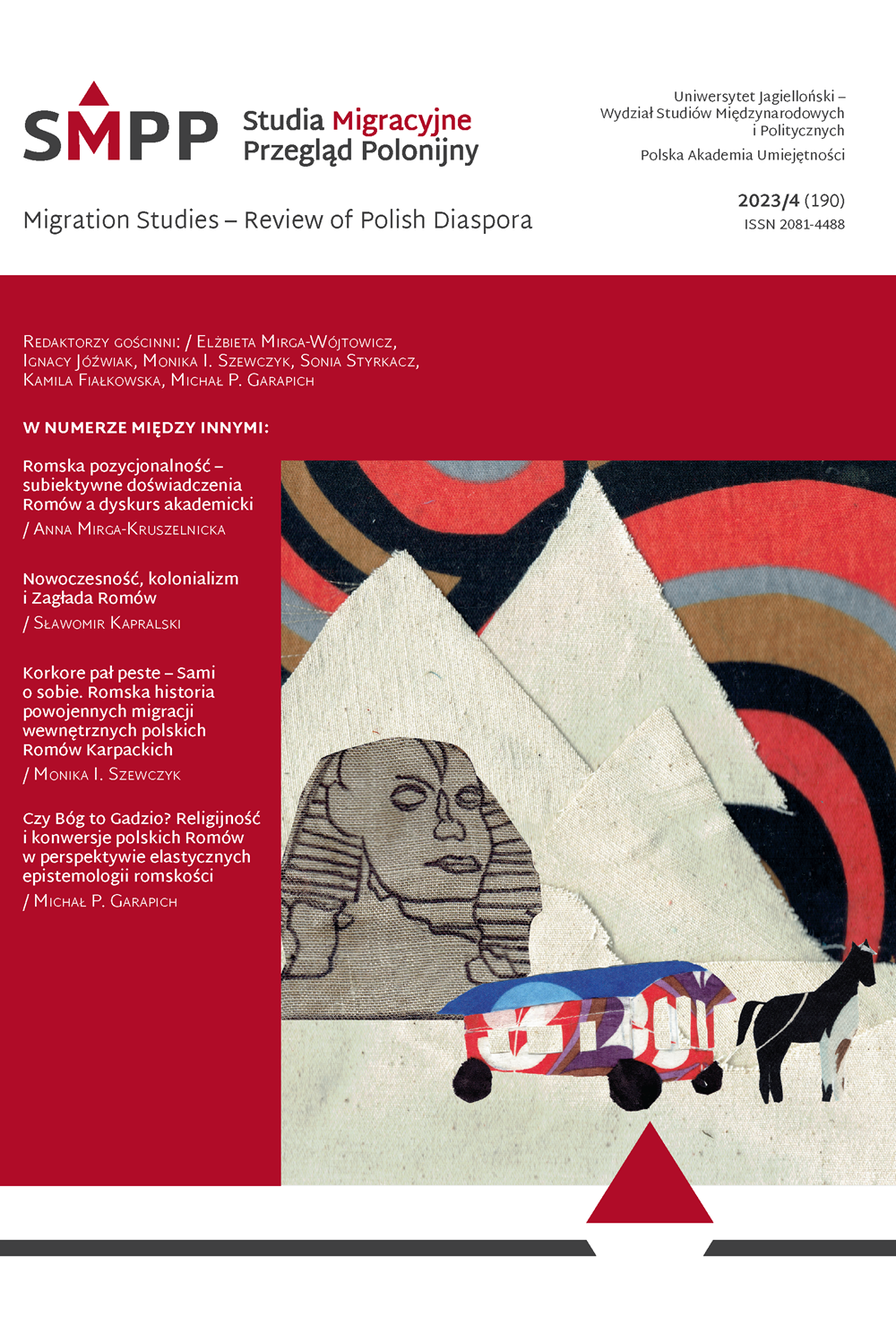
The article introduces a look at the artistic activity of Małgorzata Mirga-Tas as a Romani feminist, activist, politically involved author (in the sense of politics given to her by Jacques Rancière) and at the same time reading her work as a potential for humane education, especially Polish studies. As the author of the article shows, the categories used by Rancière to describe the public sphere, especially making the world visible, the reconfiguration of perceptible division are didactic. The article reviews textbooks for the Polish language, pointing to the absence of Romani authors and Romani issues. The recognized emptiness could be filled by the creative biography of Mirga-Tas because for the artist creating within the professional world of art, her identity is not a burden but a forming element and a source of inspiration. The potential of the exhibition “Re-enchanting the world” would allow to break the didactic discourse manifested in empathic gypsiology and on the other hand, narrowing the Romani subject to the pedagogisation of social problems presented in the perspective of Pierre Bourdieu’s habitus. According to the author of the text, the Mirga-Tas’ exhibition at Venice Biennale is a laboratory of potential history which can become a space for experimenting with fiction and life at the lesson, provided that a pedagogical strategy of political voice is adopted.
More...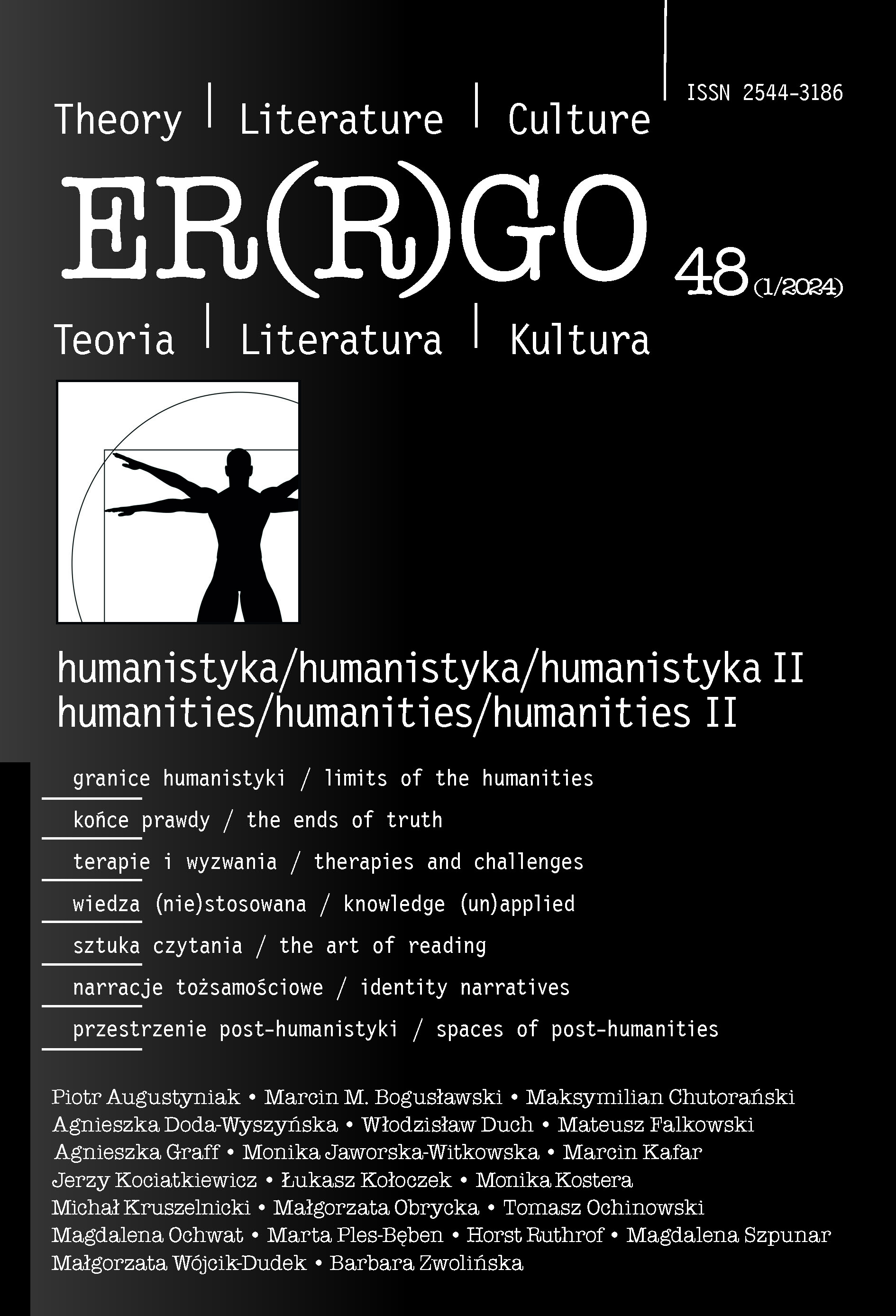
The paper postulates reading works by Paul Tillich mainly as a great humanist, whose background for thinking, anticipating his theological considerations, is priceless for a wide field of the humanistic reflections. The author indicates items permanently having difficulties in coming to the fore of humanistic thinking and still being profoundly elaborated and successfully applied in Tillich’s systematic perspective. The text shows up some selected items from the three subsequent volumes of Systematic Theology, linked with the categories which permit to reject dualistic claims inherent in a dominant thinking about culture, social life, science and humanities. The author situates Tillich’s reading within the horizon of “the duality turn-over” described by Lech Witkowski, and thus it makes a reference to his cognitive profiles disclosing possibilities of humanistic applications of the ideas of the great theologist beyond his institutional framework.
More...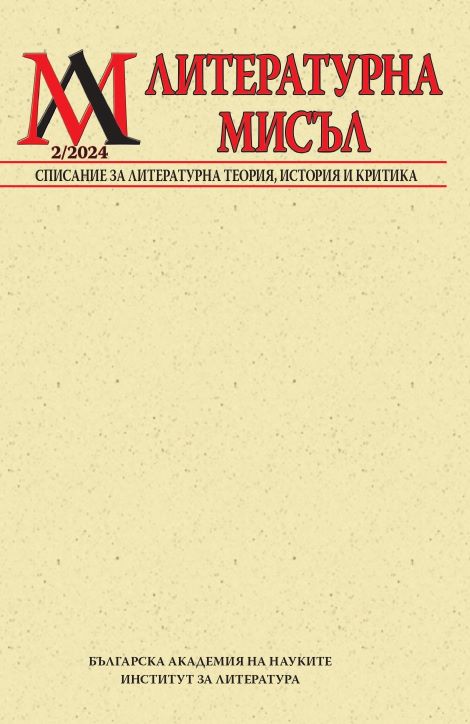
This paper deals with several well-known topics in a slightly different way: Petko Slaveykov’s articles on women’s question, his criticism of European fashion, and his love poems and their relations with his personal life. He was a great advocate of the emancipation of women, not without some restrictions typical for his time. His writings demonstrate different images of the author that were determined by the genres, patterns used by him, and the trends in society and literature; they also evolved with the age of the author.
More...
The article of Shannon Forbes “Equating Performance with Identity: The Failure of Clarissa Dalloway's Victorian “Self” in Virginia Woolf's “Mrs. Dalloway” deals with the critique of Virginia Woolf for the Victorian ideas of the identity and unity of the Ego and the identity and unity of consciousness. The article is about the novel “Mrs. Dalloway”. It examines some of the feminist and psychoanalytic implications of this critique and outlines some important parallels with the essay “A Room of One’s Own” by Woolf. The early feminist writing of Woolf is viewed in the light of the psychoanalytic doctrine of Sigmund Freud and Jacques Lacan that undermines the claims of the ethics of the 19th century that the subject must be consistent and monolithic and anything else should be considered unhealthy. The article elaborates on the episodes in “Mrs. Dalloway” where Clarissa enjoys the walks in London precisely for the purpose of borrowing from the orderliness of the modern city and putting her own personality in order. Clarissa presents the meetings with Peter and Septimus as overburdening because of their questions is she happy and how does she feel. Judith Butler is quoted revealing the performative meaning of Mrs. Dalloway’s actions and her life as a performance. Luce Irigaray is quoted in feminist perspective. She comments on the mirror-function of female personality in patriarchal society, which keeps the female identity always fragmentary and dependent. Clarissa Dalloway hopes for her party to resolve all that.
More...
Postcolonial literary works by women examine leaving their homeland, enslavement, suppression, rebellion, variance, ethnicity, sexism, location, and reactions to British imperialism and the USA's crucial control conversations, as well as the basic realities of language and communication that gave rise to all of this. Postcolonialism is not opposed to what it includes; instead, it opens up new avenues of research and knowledge. This research sheds light on the intricacies of gendered, racial, and cultural identities in the wake of colonialism by elevating the voices and experiences of postcolonial women. It also contributes to continuing discourses within feminist theory and postcolonial studies. In the end, it makes the case that in order to imagine more inclusive and fair futures, it is critical to magnify a variety of tales and viewpoints.
More...
The book „Fiction in the archives. The selection of facts and documents in scientific research“ (2024) contains articles from the scientific conference with the same title held in March 2023 at Sofia University. Compilers of the collection are Andriana Spasova, Anna Alexieva, Boyka Ilieva, Nadezhda Alexandrova, Nikolay Zhelev, Slaveya Nedelcheva. The collection aims to raise the topic of the two-way interaction between fact and fiction, myth and history, document and literature.
More...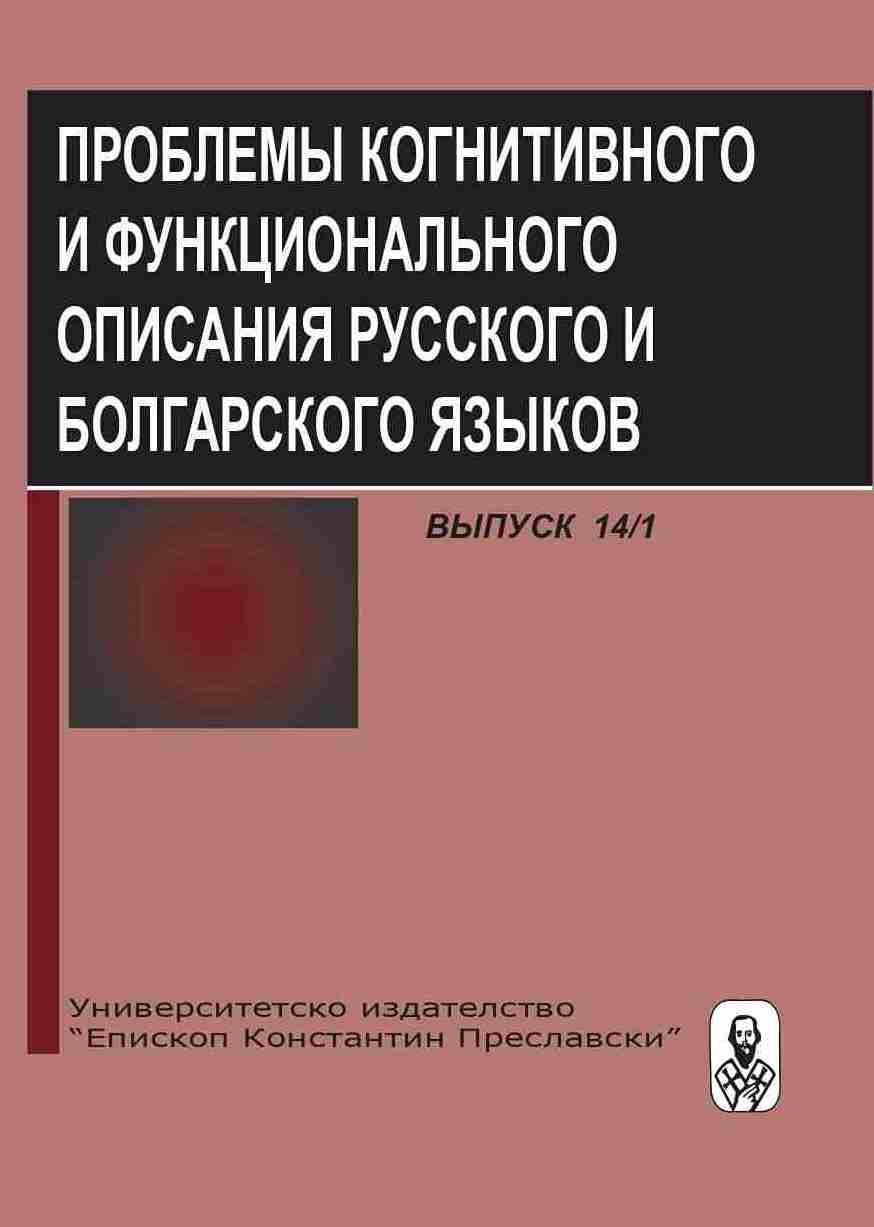
The article considers a characteristic feature of the lexicon of the computer sphere in Russian and Bulgarian - metaphorization as a means of nomination in the IT sphere. The terms and slang units formed in this way are not only an expressive linguistic means, but also a means of transmitting information to a special field of knowledge, are a means of cognition and an expression of national and cultural specificity. Metaphorical transference is carried out on the basis of associative external features, functions or actions. The change in the semantics of common tokens is associated with an object, phenomenon, process, etc., belonging to the field of IT and is carried out by linking the new and common, sometimes metaphorization occurs in English, the language from which computer terminology is borrowed.
More...
The article is devoted to the description of ambiguous moments in the study of linguistic units with the meaning of basic emotions in the German and Belarusian languages. Linguistic data indicate that emotions are complex internal mental phenomena, resulting in the difficulty of their differentiation and subsequent awareness and verbalization (representation with the use of linguistic means) by a person, and, as a consequence, the lack of clarity in the semantics of linguistic unitsr epresenting basic emotions in the compared languages. On the one hand this is manifested in the fact that for the representation of one basic emotion in the compared languages, several nominative units are used, showing different ways of realizing this emotion. On the other hand, for the definition of emotion, first of all, a person's perception is used when experiencing this emotion. This fact underlines the important role of physiology in the process of comprehending and describing emotions.
More...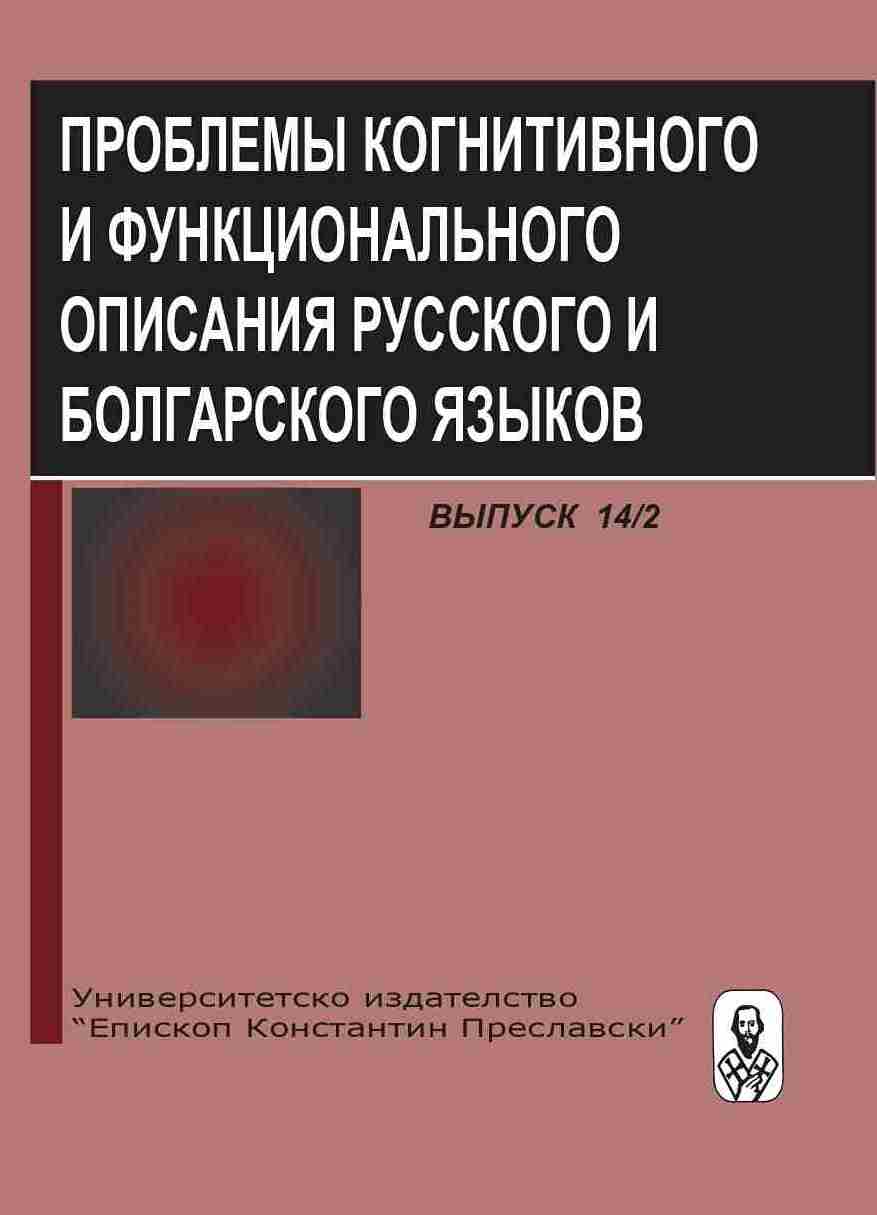
Analysis of the language of science and technology is an actual scientific direction in modern linguistics. Word formation processes in the field of terminology are the object of a large number of linguistic studies on various term systems based on different languages. The article analyzes the sources and methods of formation of terminological vocabulary of the Russian language in the field of cosmetology and cosmetics, considers the productive word-formation models of terms in this area, which are not sufficiently covered in the linguistic literature today.
More...
The number of terms today in various fields of knowledge is huge. Therefore, the question of their linguistic features and the ways in which they are formed and function is increasingly attracting the attention of terminologists. The terms word combinations have a variety of syntactic and structural models. They are basically prepositions and prepositions. The emphasis in this report is on the consideration of the formal structure of the terms word combinations in Bulgarian and Russian. Their formal structureand the syntactic connection between their components are considered. Some basic formal-structural models are presented, according to which a number of conclusions can be made about the linguistic form of the terms word combinations in the two languages. examples from the field of socio-political vocabulary and from the field of ecology and environmental protection.
More...
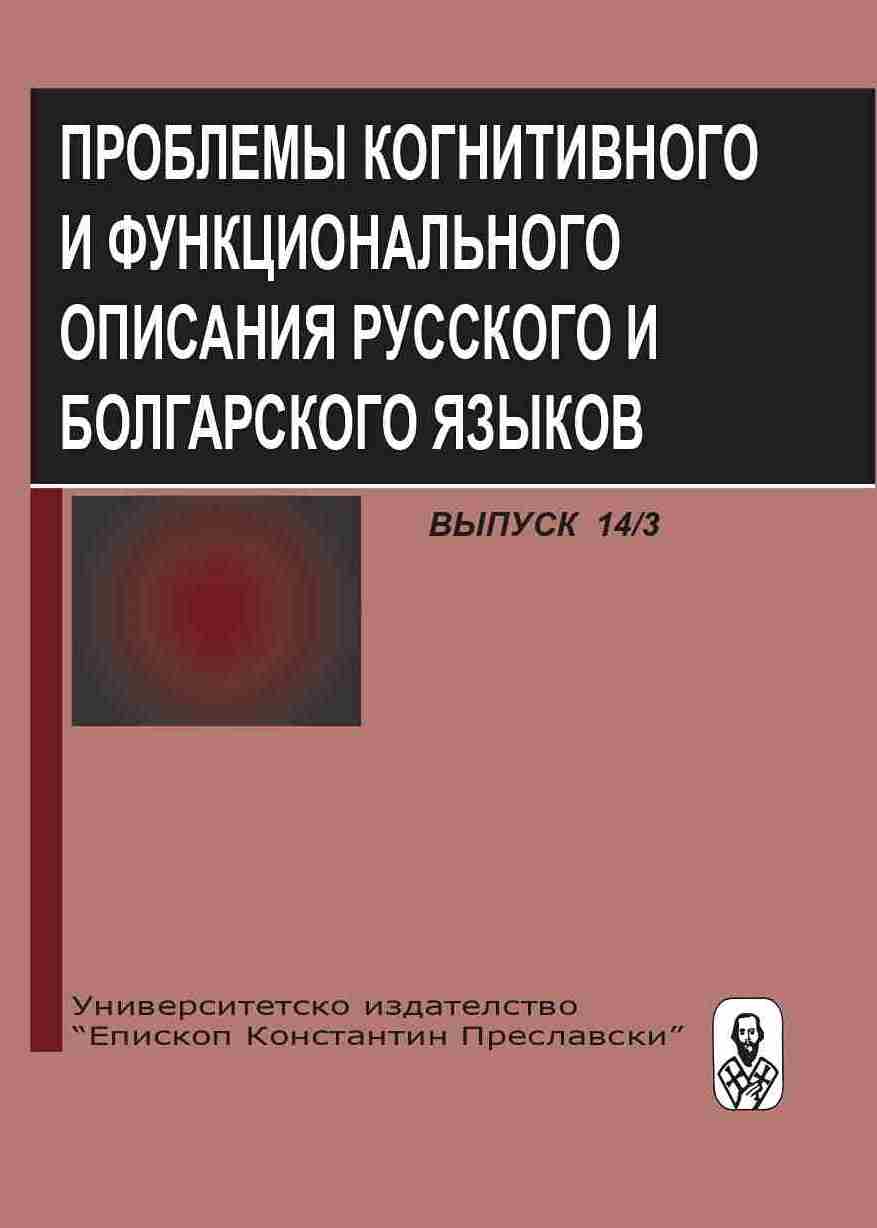
The article discusses the practical implementation of small talk dialogic forms of communication in the educational process. The application of communication training allows implementation of many variants of situational models, the development of which in the classroom is a precondition for improving the level of language training of students, their social orientation and communicative flexibility. The imitation of a natural dialogical situation according to the small talk model in the teaching of Russian as a foreign language, especially in the initial stage, contributes to the formation of basic communication skills and linguistic competence of students.
More...